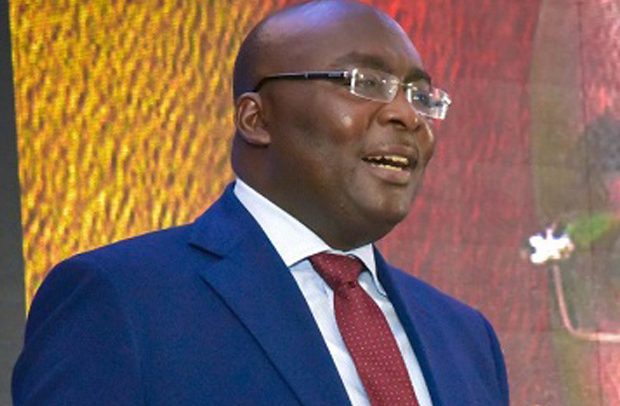Vice-President Dr. Mahamudu Bawumia
Vice-President Dr. Mahamudu Bawumia has announced a new policy direction for the Births and Deaths Registry after Cabinet has given approval for its decentralization.
Dr. Bawumia has explained that Parliament will receive from the Minister for Local Government and Rural Development, Hajia Alima Mahama, a bill for consideration to that effect.
For the first time in the history of the management of births and deaths, the procedure will no longer be done at a central location.
“The objective of the bill is to provide for a more efficient births and deaths registration system in the country, as well as decentralize effectively the births and deaths registration system,” Dr. Bawumia said.
Continuing, he said the new deal would make for the devolution of the functions of births and deaths registration to MMDAs and its expansion under the Local Government Act, 2016 (Act 936).
Speaking on the subject when he paid a surprise visit to the head office of the Births and Deaths Registry yesterday, the Vice-President pointed out that “while efforts by the registry, including public education and awareness creation, and boosting the capacity of the registry, had yielded an increase in birth registration coverage from 17% in 2001 to an all-time high level of 80% as at the end of 2019, this achievement is, however, still below the UN standard of 90% coverage.”
Dr. Bawumia expressed delight in what for him is “the rapid pace of work on the digitization of the paper records of the registry, which would allow for the integration of its database with other state agencies, further streamlining service delivery.”
“I am happy to learn that thus far 80% of the paper records have been digitized, and we should see the process completed by the end of this year or latest early next year. When completed, the database of the Births and Deaths Registry will be integrated with that of the National Identification Authority (NIA) for the issuance of a single NIA number for everyone from birth to death,” he said.
The database, he added, would be integrated into other agencies, such as SSNIT and NHIA, which he explained is part of President Akufo-Addo’s policy to make the provision of public services easier.
By A.R. Gomda


